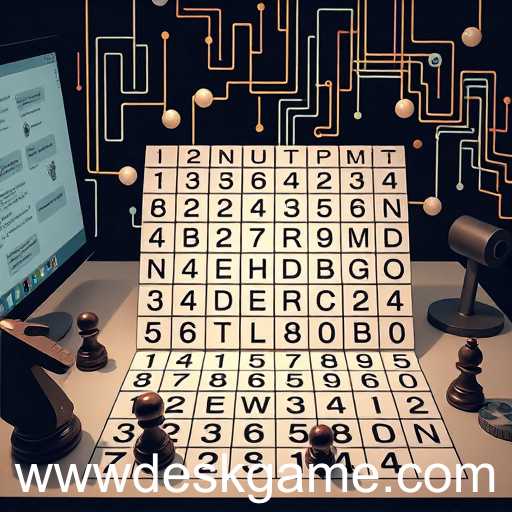Dive into the intellectual realm of 'Logic Challenges' – games that mesh entertainment with mental skill-building, epitomized by the keyword 'deskgame.' Discover their educational value, social engagement aspect, and future potential in digital and augmented realities.
In the realm of online gaming, few categories are as intellectually stimulating and rewarding as 'Logic Challenges.' These games, designed to test and expand the mental capabilities of players, are often nestled under the broader umbrella of brain training or puzzle games but hold their distinctive charm due to their complex nature. The keyword 'deskgame' has become synonymous with this category on the web, likely drawing from the idea of these being games that one might play on a traditional desk to engage the mind.
Logic Challenges are not just about problem-solving; they require critical thinking, creativity, and sometimes even learning new patterns or systems. They can range from classic puzzles like Sudoku and crosswords to more modern digital escapades involving complex systems and simulations. The diversity within this genre means there’s something to challenge everyone, regardless of age or skill level.
For those seeking to sharpen their mental acuity, Logic Challenges offer a perfect blend of entertainment and education. The games are often designed to encourage strategic thinking, prompting players to plan several steps ahead, like a high-level chess game. As players delve deeper into these challenges, they can develop a more refined sense of logic and reasoning, which can be beneficial in everyday decision-making processes.
Moreover, 'Logic Challenges' are also popular in educational settings. Teachers and educators are increasingly incorporating these games into curricula as a tool to enhance students' cognitive abilities. By engaging students in activities that require them to use and improve their logical reasoning skills, educators are effectively preparing them for more significant academic challenges and developing crucial life skills.
Notably, the appeal of 'Logic Challenges' extends beyond the individual player. Many of these games incorporate aspects of collaboration, allowing players to work together to overcome complex challenges. This social element not only makes the experience more engaging but also fosters a sense of community among players with like-minded interests in analytical pursuits.
The rise in popularity can be credited to the digital platforms that host these games. Websites dedicated to 'deskgame' categories provide easily accessible libraries of logic puzzles, ensuring that enthusiasts can find home-grown challenges or internationally recognized standards easily. The versatility of accessing these online games means they can be enjoyed anywhere and anytime, breaking the traditional boundaries set by physical board games.
As technology continues to advance, the potential for innovation within logic games is immense. Augmented reality and virtual reality are already making inroads into the gaming industry, offering exciting possibilities for the future of logic-based games. Imagine a world where you can step into a puzzle environment physically, interacting with components within a fully immersive space. This could redefine how players experience Logic Challenges, pushing their boundary of creativity and cognitive prowess.
In summary, the 'Logic Challenges' game category, exemplified by the keyword 'deskgame,' represents a fascinating intersection of entertainment and intellect. It draws players into a world where strategy, foresight, and a perceptive mind are constantly honed. Whether playing solo or with friends, these challenges offer valuable mental exercise while ensuring an endlessly enjoyable experience.




